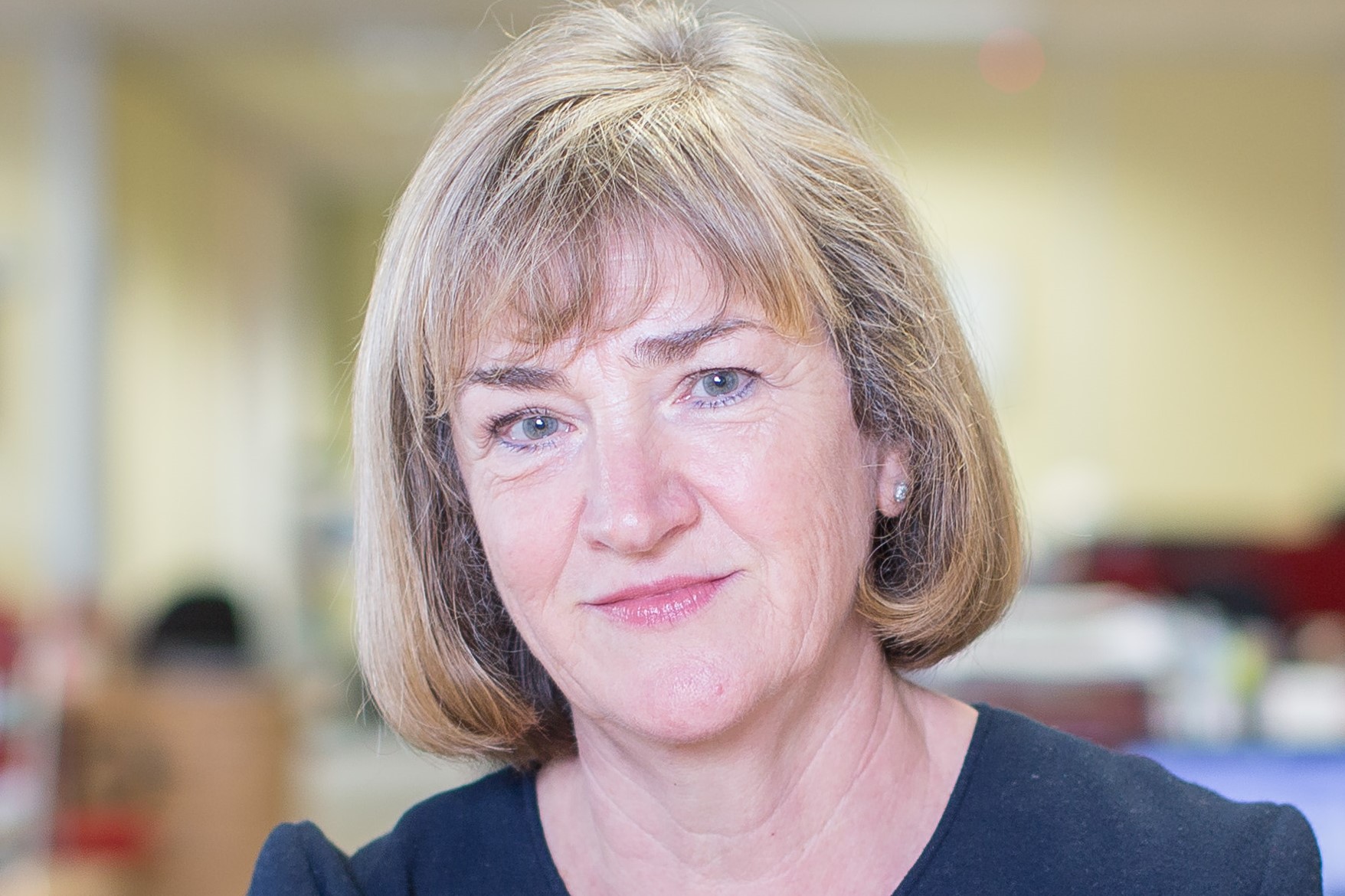Doing the right thing
As one of the UK’s most sustainable universities, it may seem an obvious connection to see the deputy chair of leading environmental charity Keep Britain Tidy on Manchester Met’s Board of Governors.
However, for Philippa Anderson it is an opportunity to give something back to the place where her career began, while helping the University drive forward in its mission.
“Life has come full circle,” said Anderson. “If I hadn’t been to Manchester Met, I wouldn’t have been able to do what I’ve done in my life. I wouldn’t have had the knowledge and confidence to work in different places.”
It is a life that saw Anderson graduate with a degree in business from Manchester Met in 1976, before embarking on a career in communications with marketing and public relations agencies in London, then moving to Singapore, working as a freelance writer.
After moving back to the UK, she drew on her expertise and experience to set up a consultancy, which saw her working with large corporate clients such as 3M, Barclays, Coca-Cola and Marks & Spencer.
“My husband’s job meant we moved around a lot,” Anderson explained. “When we relocated to Singapore, I decided to start working for myself.
“I wrote for local newspapers, British Airways magazine, Singapore Airlines magazine and many others, which meant that when I came back to the UK in the early 1990s, I had a breadth of skills and experience.
“With the birth of the internet I worked for organisations that were moving from local structures to global models – so for me with my international experience, it all came together. I was lucky to work with major blue-chip organisations.”
It was at this point that Anderson discovered how her flair for communications and experience in business could overlap with her passion for the environment.
“At this time there was a growing awareness of sustainability, or what was known then as corporate social responsibility,” she explained. “Companies wanted to be seen to be doing the right thing and consumers started to become more aware of the type of company they were buying from.”

With sustainability at the heart of many business plans, Anderson found herself perfectly placed to make a difference through her work.
And, as she reflected on her career, she is proud to recall how her experience at university has helped to underpin this position.
“With my understanding in business from Manchester Met, I was able to appreciate different business practices,” she said.
“The university experience taught me a lot. We covered a breadth of topics and had more face-to-face lectures and tutorials as there wasn’t the technology to do anything differently. We also had two work placements which helped build practical experience.”
While Anderson has witnessed huge changes in the business world throughout her career, she also looks back on her time at university as a sign of how much society has changed and the range of opportunities that have opened as a result.
“There were few women on my course and the student population was predominantly male,” Anderson recalled. “There were also few halls of residence at the time, and I lived in a terrible flat in West Didsbury – but it was great fun.
If individually we can make small actions, collectively we'll make a difference.
“Women weren’t allowed in Manchester’s public bars, which is hard to imagine now, and there weren’t many jobs available for women after I graduated.
“I remember one interview where I was offered the job and was told that, if I worked there, I wouldn’t be allowed to wear trousers.”
While her experiences at Manchester Met, and her work as a strategic communications consultant and a published business author, have defined her success, Anderson’s true passion lies in her current role as deputy chair of Keep Britain Tidy.
“I’ve always done volunteering work,” Anderson explained. “I worked with the United Nations teaching English to refugees when I lived in Asia, and I’ve always actively sought to make a difference.
“I remember when I once went to Hampton Court Flower Show and watched people get up and leave all their picnic rubbish on the table and just walk away. There is this attitude that it’s ok to leave rubbish and someone else will clean it up.
“We’ve seen this over the last two years with more staycations, discarded face masks and people spending more time in their local areas.
“When I saw the role for Keep Britain Tidy, I realised what I could bring with my business experience and interest in caring for the environment and addressing waste – litter is an interrelated environmental, economic and social issue.”
It is a message that Anderson is supporting through the work of the charity and one that she has identified with through Manchester Met’s own sustainability strategy.
“If individually we can make small actions, collectively we’ll make a difference.
“If you love where you live, you won’t make a mess of it and will look after it. If we can increase this sense of belonging, we can make a difference.”
For Anderson, the commitment to sustainability and the evidence of the actions Manchester Met has taken in this area were at the heart of her decision to apply for a role on the University’s Board of Governors.
“The way the University articulated what it has done and what it wants to do makes me want to be a part of it and want to help,” Anderson said.
“Manchester is a fantastic city that has committed to sustainability goals that echo the work I do with Keep Britain Tidy. It’s a great place to be with great people.”
